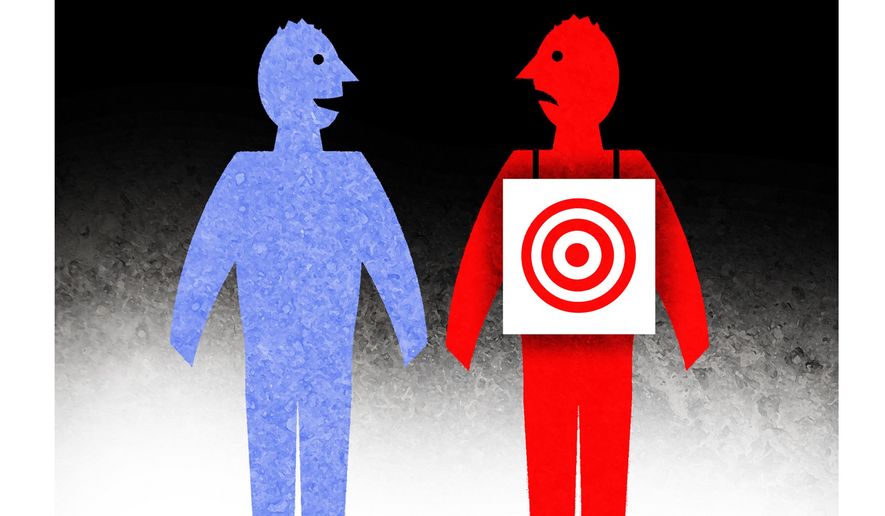OPINION:
By shifting the burden of paying back up to $20,000 from each person who incurred student loan debt to taxpayers, Team Biden exacerbated the political polarization of the United States.
Usually, when people talk about polarization, they mean partisan polarization. But that is a lazy and shallow assessment. The real division between people — the division that is both obvious and so dangerous that it is rarely mentioned — is the chasm between those for whom society and its institutions are working just fine and those for whom society and its institutions are either not working at all or are actively working against.
The last few weeks in the United States have seen a few really stark examples. Let’s start with the student loan disaster. Team Biden has been engaged in a relentless effort to make the working class pay for the education of the well-off since the president took the oath of office. It is a completely indefensible policy for a number of reasons — the inequity of penalizing frugality, thrift and hard work; the creation of moral hazard related to the discharge of debt; the feeding of the always voracious academy; the ignoring of universities’ considerable assets and other endowments.
But the most salient reason to oppose it is that it is regressive. It transfers cash from the relatively less well-off to the relatively more well-off.
How about the budget reconciliation? That legislation, formally called the Inflation Reduction Act, is loaded with tax credits for companies, purchasers of electric vehicles, buyers of heat pumps, water heaters, solar panels, etc.
While there was $60 billion for environmental justice (the details of the distribution of which seem hazy), just about all of the $380 billion from that legislation spent over the next 10 years will wind up in the pockets of company executives, stockholders and those well-off enough to buy electric vehicles (average price now more than $66,000), cutting-edge heat pumps, solar panels. That’s not accidental. Environmental activists are disproportionately wealthier and better educated than most.
How about CHIPS, the legislation in which Congress gave $75 billion to semiconductor manufacturers that, combined, have made nearly $250 billion in profits in the last five years? Sen. Bernard Sanders, Vermont independent, in announcing his very strong reservations about the legislation, pointed out that whenever he had proposed policies to help poor people such as free community college, expanded Medicare and paid family leave, he was told that we couldn’t afford it.
Yet, when the chipmakers threatened to send even more of their fabrication facilities offshore, we somehow found $300 billion for them and their allies in universities and government.
This is a bipartisan problem. Seventeen Senate Republicans — unable to shed their reflexive attitudes toward business — voted for the CHIPS Act. Others have, in the past, voted for many of the tax credits embedded in the reconciliation legislation. The progressives in the House also voted for the giveaways to corporations and rich people embedded in the CHIPS legislation and the reconciliation. The Democrats — despite their rhetoric and the stories they tell themselves about being for the little guy — have been the originators of most of these regressive ideas. Their coalition now consists entirely of those for whom the system works — college-educated laptoppers and recipients of federal and state largesse.
The biggest divide in American political life is not between Republicans and Democrats. It is between those who now see that the system is actively hostile to them and those who see that as well, but who do not care because it works for them.
That is the polarization we need to address, and soon.
• Michael McKenna, a columnist for The Washington Times, co-hosts “The Unregulated” podcast. He was most recently a deputy assistant to the president and deputy director of the Office of Legislative Affairs at the White House.




Please read our comment policy before commenting.